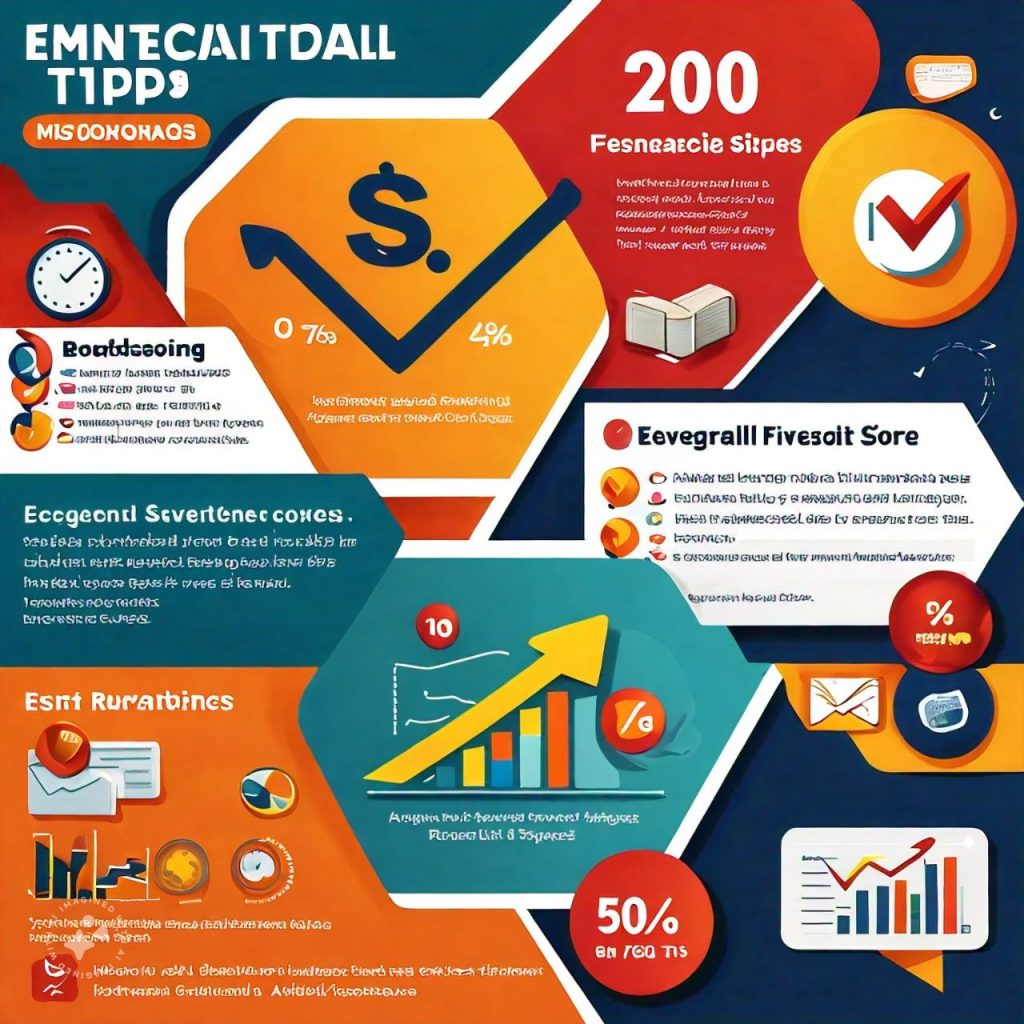Understanding the Problem: Financial Challenges for Millennials
The Burden of Student Debt
According to the Federal Reserve, as of 2023, student loan debt in the U.S. reached approximately $1.7 trillion, with the average graduate owing about $30,000. This staggering figure is a significant burden that can weigh heavily on my financial future. Many of my peers struggle to make ends meet while simultaneously paying off loans, leading to increased stress and anxiety.
Rising Living Costs
The cost of living has surged in recent years. According to the U.S. Bureau of Labor Statistics, inflation rates have fluctuated between 5% and 7% annually over the past few years. Rent prices in major cities have also increased by over 30% since 2019. As millennials, we often find ourselves in a tough spot, trying to balance rent, groceries, and other living expenses while saving for the future.

Unstable Job Market
The COVID-19 pandemic shook the job market, and many millennials faced layoffs or job insecurity. According to a report by McKinsey & Company, 40% of millennials lost their jobs during the pandemic, forcing many to dip into their savings or rely on credit cards to get by. This instability can create long-lasting financial scars, making it essential to take control of our finances.
Agitating the Problem: The Consequences of Poor Financial Habits
When I look around, I see many of my peers struggling with their finances, and it’s clear that poor financial habits can lead to serious consequences:
Accumulating Debt
Not managing debt effectively can snowball into a much larger problem. I’ve seen friends get trapped in credit card debt due to high-interest rates, which can exceed 20% annually. This means for every dollar spent, they’re actually paying back $1.20 or more if they only make minimum payments.
Poor Credit Scores
A poor credit score can limit my ability to secure loans or rent apartments. According to Experian, the average credit score for millennials in 2023 was 695. While that’s not terrible, many millennials don’t realize how quickly their score can drop due to missed payments or high credit utilization. A lower score can mean higher interest rates, affecting my financial situation for years to come.
Limited Retirement Savings
Many millennials overlook retirement savings. A report from Bankrate showed that 66% of millennials have less than $1,000 saved for retirement. With the rising costs of living and student debt, it’s easy to put retirement on the back burner. However, this could lead to financial difficulties later in life, forcing us to work longer than we planned.

Solution: Essential Financial Tips for Millennials
Now that we’ve identified the problems and their consequences, let’s dive into practical solutions. Here are some financial tips to help me and my fellow millennials navigate these challenges effectively.
1. Create a Budget
One of the first steps in taking control of my finances is creating a budget. A budget helps me track my income and expenses, allowing me to see where my money goes each month. According to a study by the National Endowment for Financial Education, people who budget report feeling more in control of their finances.
How to Create a Budget:
- List all sources of income: This includes my salary, side gigs, or any other income streams.
- Track expenses: Categorize my expenses into fixed (rent, utilities) and variable (entertainment, groceries).
- Set spending limits: Allocate specific amounts for each category to prevent overspending.
- Review and adjust: Regularly review my budget and make necessary adjustments as my financial situation changes.
2. Build an Emergency Fund
An emergency fund acts as a financial safety net, protecting me from unexpected expenses. Financial experts recommend saving at least three to six months’ worth of living expenses.
How to Build an Emergency Fund:
- Start small: Begin with a goal of saving $500 to $1,000. This initial amount can cover minor emergencies.
- Automate savings: Set up automatic transfers to a separate savings account to make saving easier.
- Reassess regularly: As my income increases or expenses change, I should reassess my savings goals.

3. Pay Off High-Interest Debt First
Focusing on high-interest debt, like credit cards, is crucial. According to a study by the Consumer Financial Protection Bureau, Americans hold $925 billion in credit card debt, with an average interest rate of 16%.
Strategies for Paying Off Debt:
- Use the avalanche method: Focus on paying off debts with the highest interest rates first while making minimum payments on others.
- Consider debt consolidation: Look for options to consolidate high-interest debts into a single, lower-interest loan.
- Negotiate lower rates: Don’t hesitate to call creditors to negotiate lower interest rates or payment plans.
4. Invest Early and Often
The earlier I start investing, the more I can take advantage of compound interest. According to a report by Fidelity, millennials who start investing at age 25 can potentially have $1 million by retirement, compared to $500,000 if they start at age 35.
How to Start Investing:
- Educate myself: Take advantage of free resources, like podcasts and online courses, to learn about investing.
- Utilize employer-sponsored retirement plans: Contribute to a 401(k), especially if my employer offers matching contributions.
- Consider low-cost index funds: These funds provide a diversified portfolio with lower fees than actively managed funds.
5. Improve My Credit Score
Improving my credit score can lead to lower interest rates and better loan terms. According to Experian, I can improve my score by following these steps:
- Pay bills on time: Set reminders or automate payments to avoid late fees.
- Keep credit utilization low: Aim to use less than 30% of my available credit.
- Check my credit report: Regularly review my credit report for errors and dispute any inaccuracies.
6. Save for Retirement Early
It may feel like retirement is a long way off, but starting early is crucial. According to a report by the Employee Benefit Research Institute, nearly 30% of millennials are not saving for retirement.
Steps to Save for Retirement:
- Take advantage of employer-sponsored plans: Maximize contributions to my 401(k), especially to get the full employer match.
- Open an IRA: Consider a traditional or Roth IRA to take advantage of tax benefits while saving for retirement.
- Increase contributions over time: As my income grows, gradually increase my retirement contributions.

7. Seek Financial Advice
If managing finances feels overwhelming, seeking professional advice can provide clarity. According to a survey by Bankrate, 35% of millennials work with a financial advisor, which can help me create a tailored financial plan.
Where to Seek Help:
- Financial advisors: Look for fiduciaries who put my interests first.
- Online resources: Utilize websites and apps that offer financial planning tools.
- Community programs: Check for local workshops or seminars that focus on financial literacy.
Conclusion
Navigating the financial landscape can be challenging, especially as a millennial. However, by understanding the common financial challenges we face and implementing these practical tips, I can take control of my financial future. Remember, the earlier I start budgeting, saving, and investing, the better prepared I’ll be for the challenges ahead. Taking small, consistent steps toward financial health can lead to significant improvements over time, ultimately paving the way to financial freedom.
Frequently Asked Questions (FAQs)
What is the best way to start budgeting?
The best way to start budgeting is to track your income and expenses. List all your income sources, categorize your expenses, and allocate specific amounts for each category. There are numerous budgeting apps available to help streamline the process.
How much should I save for emergencies?
Aim to save three to six months’ worth of living expenses in an emergency fund. This amount provides a cushion for unexpected expenses, like medical emergencies or job loss.
How can I improve my credit score quickly?
To improve your credit score quickly, pay bills on time, reduce your credit card balances, and avoid opening new credit accounts too frequently. Regularly checking your credit report for errors can also help boost your score.
Should I invest if I have debt?
Yes, but prioritize paying off high-interest debt first. If your employer offers a retirement plan with matching contributions, consider contributing to that while simultaneously working on your debt.
How do I know if I need a financial advisor?
If you feel overwhelmed managing your finances or are unsure about investment strategies, a financial advisor can provide valuable insights and help create a tailored financial plan.
Is it too late for me to start saving for retirement?
It’s never too late to start saving for retirement. The earlier you start, the more you can benefit from compound interest. Even small contributions can add up over time.






